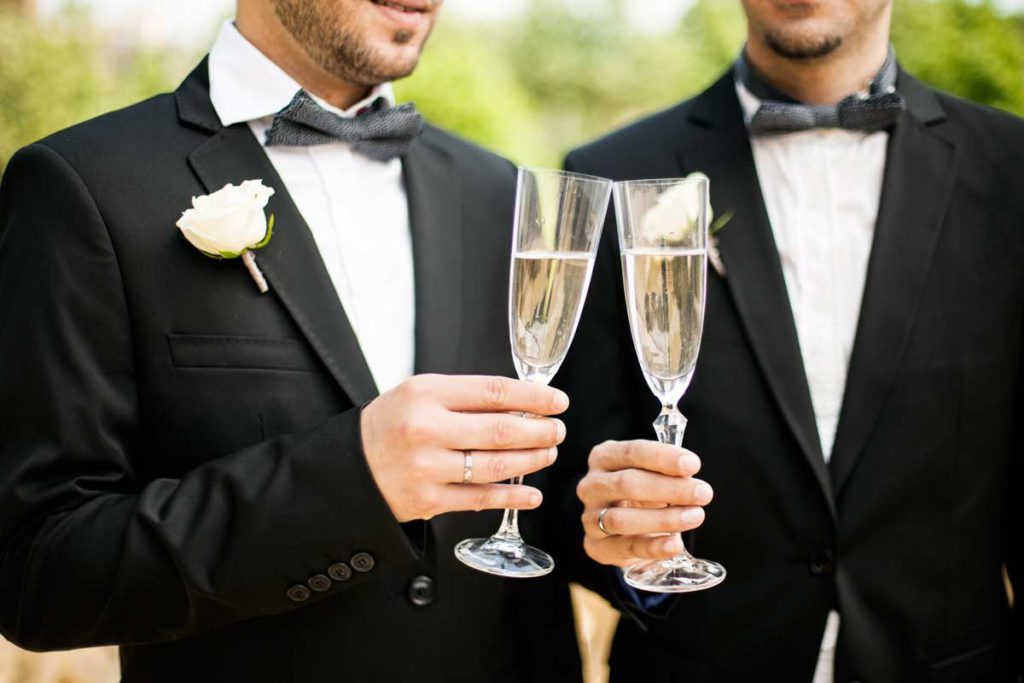All You Need to Know About Gay Marriages in the UK

Stigma, homophobia, and discrimination against gay men and women exist in all parts of the world. With gay men trying to fight for their rights, things have certainly improved over the last decade or so. However, they still have to deal with negative beliefs and actions, directly affecting their mental and physical health. They constantly worry about doing something that would be considered a criminal act. That is why it is important to educate them more about gay marriage and partnerships in the UK. Here are some of the most important frequently asked questions to help you have better peace of mind about being gay.
When Was Homosexuality Legalized in the UK?
The Sexual Offences Act of 1967 was legalized homosexuality in the UK. Before this Act, it was considered a criminal act to engage in gay activities – although it was only limited to men, as gay women were not subject to these laws. Although homosexually was decriminalized in 1967, there were still certain conditions violating LGBT rights. As per the Act, you could still face criminal charges if the sexual act was not consensual. It could only take place in private between couples over the age of 21. It was considered a limitation on gay men’s freedom as heterosexual couples could engage in sexual acts if they were 16. The Act was later amended in 2000, legalizing the age of consent, followed by enacting another new bill in May 2004 that overrode several rules about the same-sex couples’ privacy.
Is It Legal for People of the Same Sex to Get Married in the UK?
The Same-Sex Couples ACT 2013 initially divided Parliament, but eventually, it was passed after the support of the PM David Cameron. The ACT was passed in 2014, and gay marriage is now legal in all parts of the UK. Although March 2014 was one significant month of LGBT history in the UK, same-sex marriage was legalized at different times in different parts of the UK. It is considered a devolved legislative matter. It has been recognized in England and Wales since March 2014, but it wasn’t performed in Northern Ireland until January 2020. Today, gay guys are free to have sex and marry like heterosexual couples, but they believe that there is still a long way to go to eradicate homophobia in general.
What’s a Civil Partnership?
It’s a legal relationship two people can register when they aren’t related to each other. Both gay and opposite-sex couples can take advantage of a civil partnership to get their relationship recognized legally. By registering a civil partnership, gay couples will enjoy additional legal rights along with some responsibilities. Speaking of Civil Partnership vs. marriage, there isn’t a huge difference between the two. The civil partnership became legal in 2004, so they were the only option for gay couples to obtain the same rights as civil marriage. Couples can acquire parental responsibility, tenancy rights, social security benefits, full life insurance recognition, child maintenance, and next-of-kin rights with civil partnerships.
Can You Convert a Civil Partnership into a Marriage?
Yes, it is possible to convert your civil partnership to a marriage. The Secretary of State is responsible for issuing guidance on this matter. However, you can do it in two ways: you can go for a “standard conversion,” which is a one-stage process, or you can opt for a two-stage process, where you can hold a ceremony after the conversion. After the completion, you will be issued a marriage certificate, which will be dated when you first formed your civil partnership.
Can Same-Sex Couples Get Married in Churches?
Gay marriage in the UK can take place in the same way as opposite-sex marriages, but ultimately, the decision-making body for that particular church will have the right to decide if they want to “opt-in” or not. If the Conference agrees to opt-in, then they decide if they should register the building for gay marriage. Finally, for gay marriage to take place, a minister should feel comfortable conducting it at church. If these conditions aren’t met, one wouldn’t be able to arrange a same-sex marriage in a local Methodist Church. Interestingly, refusing to allow gay marriages on church premises is not a breach of the Equality Act. The law clearly states that religious organizations cannot be compelled to opt-in or conduct same-sex marriage ceremonies.
Relevant news
10 Gay Actors Who Are Famous and Successf
Gay actors may not have ruled Hollywood, but their existence was always visible. With gay…
10 Famous Gay Men Celebrities that You’ve Heart of
Gay men have been an integral part of our society, either openly or in the…
Can Gay Men Give Blood?
Long story short: yes, they can. However, there's a catch: the current guidelines (of major…
Best Gay Sex Positions
Straight people tend to believe that gay individuals are masters of all trade. For them,…
How to Find Out if Someone You Know Is Gay?
Individual sexuality is personal. No matter what, you should not invade someone's private space and…
A Successful Gay Footballer Decides To Admit He Is Gay
The world has changed so much, along with humans, technology, science, and everything else. But…

Login
Register